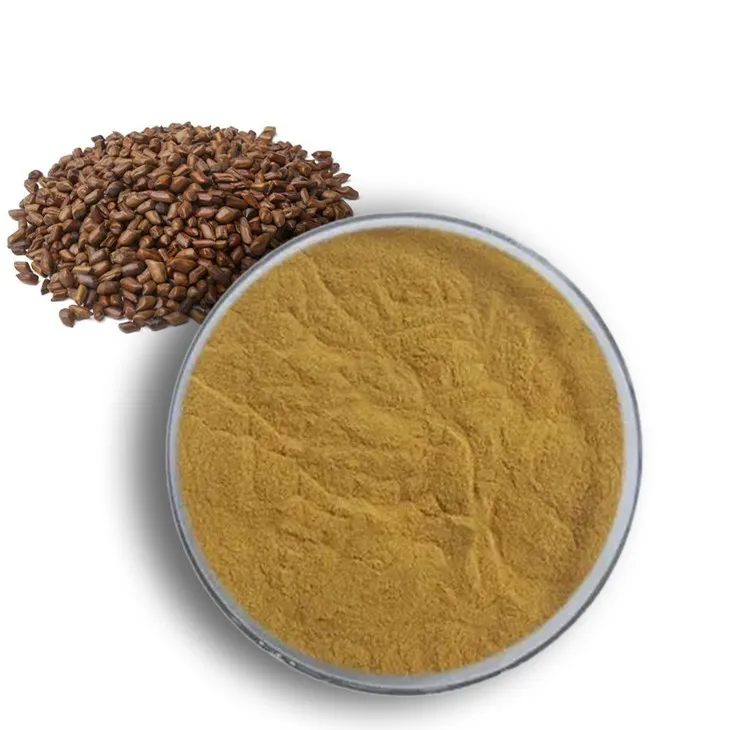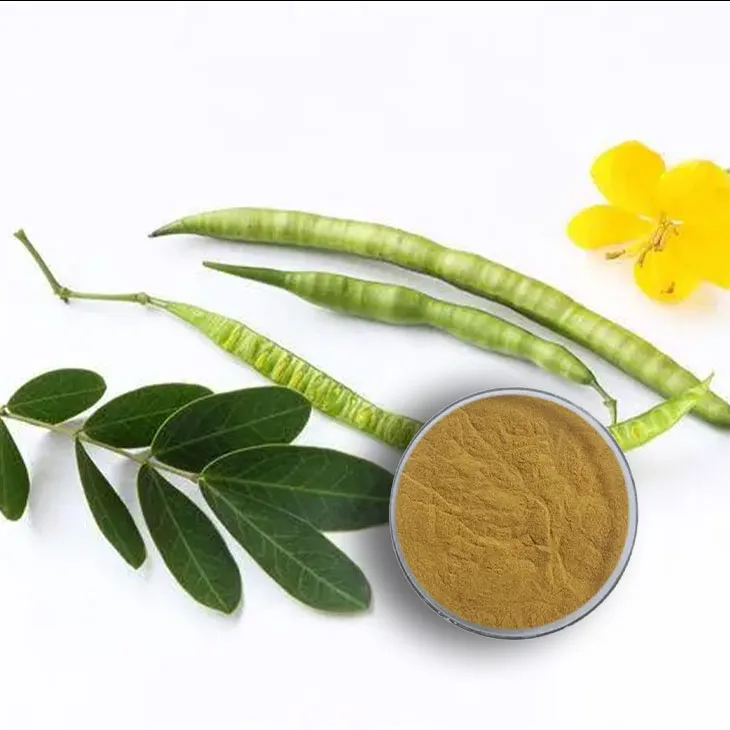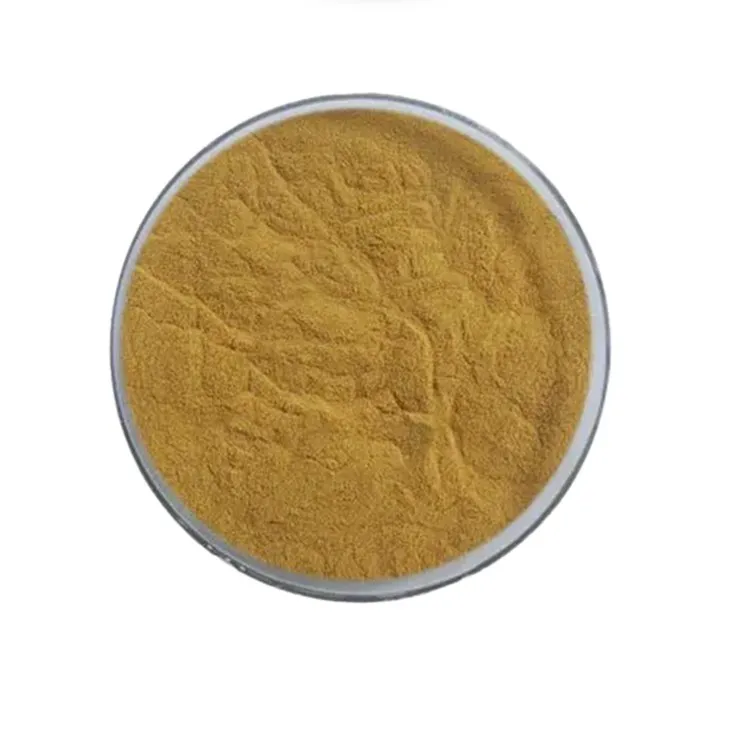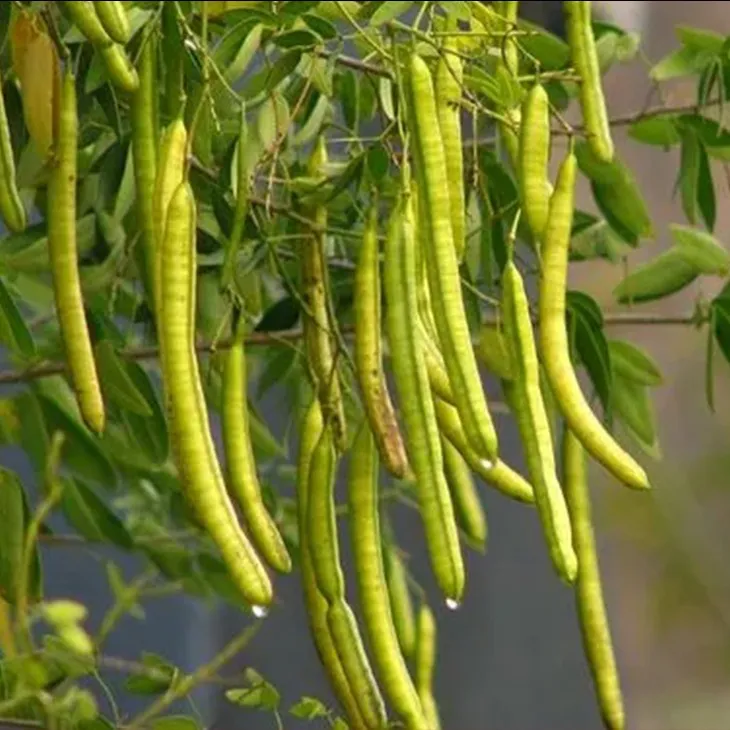- 0086-571-85302990
- sales@greenskybio.com
All about Cassia Seed Extract.
2024-12-21

1. Introduction
Cassia Seed Extract is a natural substance that has been drawing increasing attention in various fields. It is derived from Cassia plants, which are known for their diverse biological activities. The Cassia genus encompasses a number of species, and the seeds of these plants are rich sources of bioactive compounds.

2. Chemical Composition
The chemical composition of Cassia Seed Extract is quite complex. It contains a variety of compounds that contribute to its different properties.
2.1 Anthraquinone Derivatives
Anthraquinone derivatives are among the significant components of Cassia Seed Extract. These compounds have been associated with laxative effects in traditional medicine use. In traditional medical practices, the presence of anthraquinone derivatives in Cassia seeds was exploited for their ability to promote bowel movements. However, it is important to note that their use should be carefully monitored due to potential side effects. For example, excessive use of products containing anthraquinone derivatives may lead to abdominal cramps or electrolyte imbalances.
2.2 Flavonoids
Flavonoids present in the extract contribute to its antioxidant and anti - inflammatory capabilities. Antioxidants are substances that can neutralize free radicals in the body. Free radicals are unstable molecules that can cause damage to cells, leading to various diseases such as cancer and heart disease. Flavonoids in Cassia seed extract help to scavenge these free radicals, thereby protecting the body's cells. Moreover, the anti - inflammatory properties of flavonoids can be beneficial in reducing inflammation in the body. Inflammatory conditions such as arthritis can potentially be alleviated with the help of the flavonoids in Cassia seed extract.

3. Applications in Ophthalmology
Cassia seed extract has a traditional connection to eye health, and this has led to investigations into its applications in ophthalmology.
One of the main reasons for its potential use in ophthalmology is its antioxidant properties. The eyes are constantly exposed to oxidative stress, which can damage the ocular tissues. The flavonoids in Cassia seed extract can help protect the eyes from this oxidative damage. For example, they can prevent the oxidation of lipids in the retina, which is crucial for maintaining good vision.
Furthermore, Cassia seed extract may also have a role in reducing intraocular pressure. High intraocular pressure is a major risk factor for glaucoma, a leading cause of blindness. Studies have shown that certain components in Cassia seed extract may help regulate the fluid balance in the eye, thereby reducing the intraocular pressure.

4. Pharmacological Applications
In the field of pharmacology, Cassia seed extract is being studied for various potential applications.
4.1 Blood Sugar Regulation
Studies are ongoing regarding its potential in regulating blood sugar levels. Diabetes is a global health problem, and finding natural substances that can help manage blood sugar is of great interest. Some research has suggested that Cassia seed extract may affect the metabolism of glucose in the body. It may enhance the uptake of glucose by cells, or it may influence the production of insulin. However, more in - depth studies are needed to fully understand its mechanism of action and its effectiveness in treating diabetes.
4.2 Liver Protection
The extract may also have a role in protecting the liver. The liver is a vital organ involved in many metabolic processes, and it is often exposed to toxins and oxidative stress. Cassia seed extract, with its antioxidant and anti - inflammatory properties, may help protect the liver from damage. It may prevent the accumulation of fat in the liver, which is a common problem in conditions such as non - alcoholic fatty liver disease. Additionally, it may help repair damaged liver cells by reducing inflammation and oxidative damage.

5. Agricultural Applications
In the agricultural area, there are also preliminary studies on its use as a natural pesticide.
Some of the bioactive compounds in Cassia seed extract, such as anthraquinone derivatives, may have pesticidal properties. They may be effective against certain pests that attack crops. For example, they may disrupt the life cycle of insects or inhibit the growth of fungi on plants. Using Cassia seed extract as a natural pesticide could be an environmentally friendly alternative to synthetic pesticides. It can reduce the use of harmful chemicals in agriculture, which is beneficial for the environment and human health.
However, more research is needed to optimize its use as a pesticide. Issues such as the proper dosage, the stability of the extract in different environmental conditions, and its selectivity towards pests need to be addressed.
6. Safety and Quality Control
Despite its numerous potential benefits, safety and quality control are crucial when using Cassia seed extract.
From a safety perspective, as mentioned earlier, the anthraquinone derivatives in the extract can cause adverse effects if used inappropriately. Therefore, it is important to follow proper dosage guidelines. Additionally, some people may be allergic to Cassia seed extract, so it is necessary to conduct proper allergy tests before use.
Regarding quality control, it is essential to ensure the purity and consistency of the extract. The extraction process should be carefully monitored to ensure that the desired bioactive compounds are present in the appropriate concentrations. Quality control also involves testing for contaminants such as heavy metals and pesticides, which could be present in the raw materials or introduced during the extraction process.
FAQ:
What are the main components of Cassia seed extract?
The main components of Cassia seed extract include anthraquinone derivatives and flavonoids. Anthraquinone derivatives are related to laxative effects, and flavonoids contribute to its antioxidant and anti - inflammatory capabilities.
What are the traditional uses of Cassia seed extract?
In traditional medicine, Cassia seed extract has been associated with eye health. It also has laxative effects.
What are the potential applications in modern research?
In modern research, Cassia seed extract has potential applications in ophthalmology. There are also ongoing studies in pharmacology regarding its potential in regulating blood sugar levels and protecting the liver. In the agricultural area, there are preliminary studies on its use as a natural pesticide.
Why is safety and quality control important for Cassia seed extract?
Although Cassia seed extract has numerous potential benefits, safety and quality control are crucial. This is to ensure that it is used effectively and without causing harm, as improper use or low - quality products may lead to unexpected side effects or reduced efficacy.
How is the antioxidant property of Cassia seed extract related to its components?
The antioxidant property of Cassia seed extract is related to its flavonoid components. Flavonoids are known for their antioxidant capabilities, which help the extract to combat oxidative stress.
Related literature
- Study on the Chemical Components and Pharmacological Effects of Cassia Seed Extract"
- "The Role of Cassia Seed Extract in Ophthalmic Health: A Review"
- "Cassia Seed Extract: Potential in Blood Sugar Regulation and Liver Protection"
- ▶ Hesperidin
- ▶ Citrus Bioflavonoids
- ▶ Plant Extract
- ▶ lycopene
- ▶ Diosmin
- ▶ Grape seed extract
- ▶ Sea buckthorn Juice Powder
- ▶ Fruit Juice Powder
- ▶ Hops Extract
- ▶ Artichoke Extract
- ▶ Mushroom extract
- ▶ Astaxanthin
- ▶ Green Tea Extract
- ▶ Curcumin
- ▶ Horse Chestnut Extract
- ▶ Other Product
- ▶ Boswellia Serrata Extract
- ▶ Resveratrol
- ▶ Marigold Extract
- ▶ Grape Leaf Extract
- ▶ New Product
- ▶ Aminolevulinic acid
- ▶ Cranberry Extract
- ▶ Red Yeast Rice
- ▶ Red Wine Extract
-
Chia Seed Powder
2024-12-21
-
Gynostemma pentaphyllum extract
2024-12-21
-
Fig Extract
2024-12-21
-
Hawthorn Extract
2024-12-21
-
Chaste Berry Extract
2024-12-21
-
Peppermint Oil
2024-12-21
-
Shikonin
2024-12-21
-
Cocoa Extract
2024-12-21
-
Tongkat Ali Extract
2024-12-21
-
Oat Straw Extract Powder
2024-12-21





















